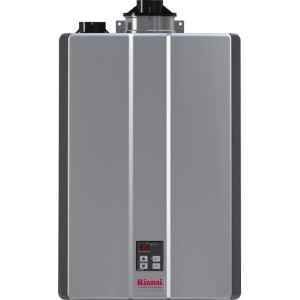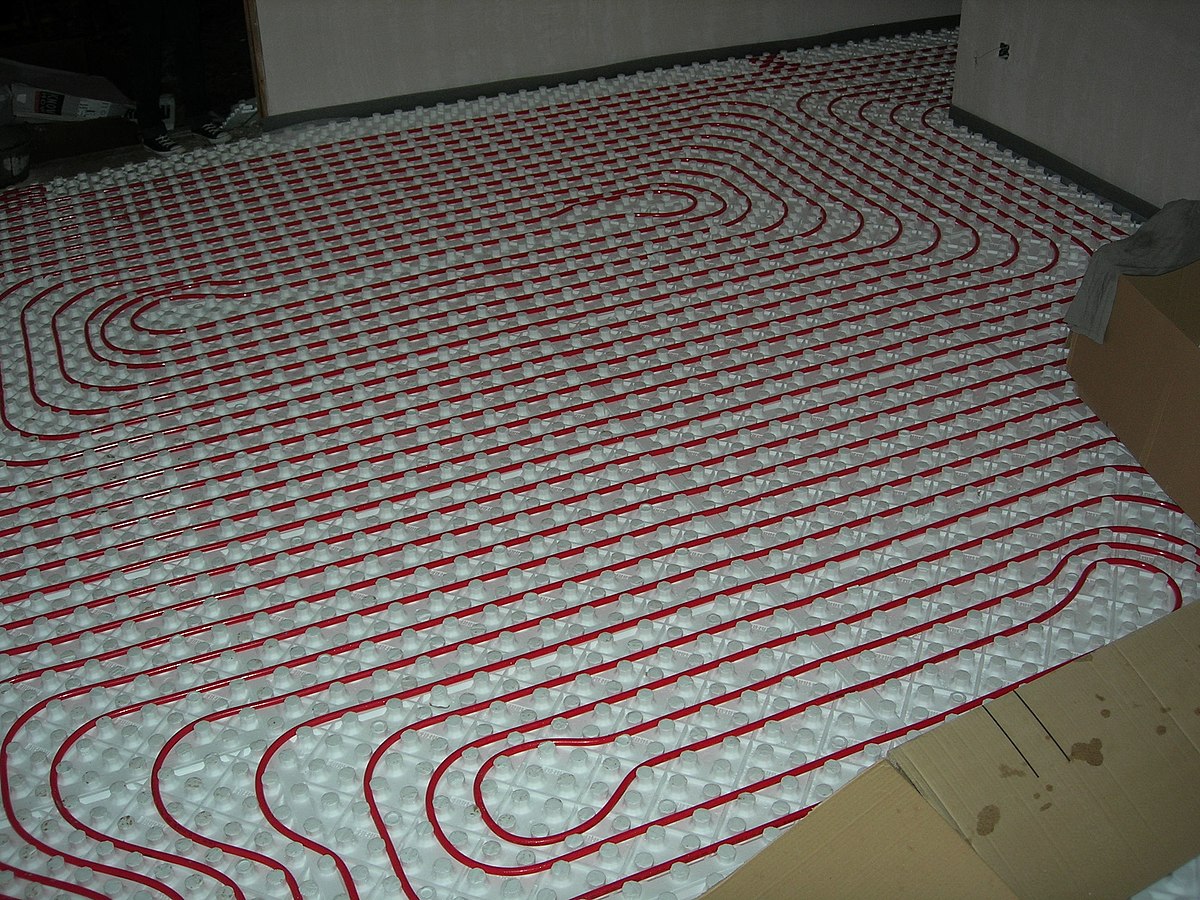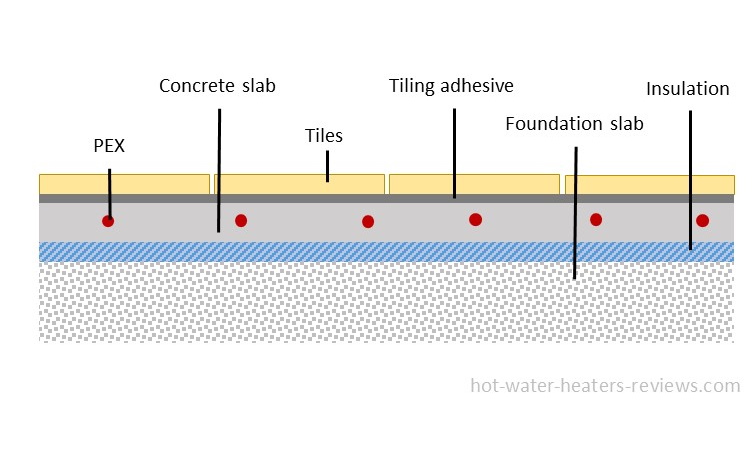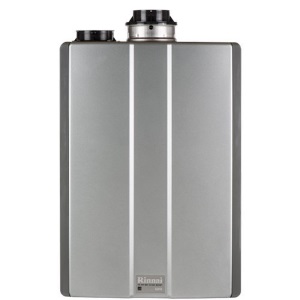- Home
- Hydronic radiant floor heating
- Tankless Water Heater for Radiant Floor Heating
Why using a Tankless Water Heater for Radiant Floor Heating is a Good Idea
 Tankless water heater for radiant floor heating
Tankless water heater for radiant floor heatingIf you are thinking of installing a radiant floor heating system in your home, using a tankless water heater for this project might be a smart move. There’s a reason why more people are switching to radiant hydronic floor heating. The benefits are numerous.
Tankless water heaters for radiant floor heating: Things to consider
For one, a tankless water heater for your radiant floor could save you a lot in energy costs and time spent in maintenance because they are energy efficient and built to last for a long time.
Secondly, you get constant and even heat supply throughout your home. Naturally, this means warm floors and cozy rooms.
Of course, we know that choosing a water heater could be a bit confusing. There are so many options out there, it’s hard to know which would be best for your home and mainly which model works with such systems.
So, this article will take you through the advantages of using tankless in radiant floor heating. We’ll look at the advantages and disadvantages of tankless water heaters. We’ll touch on why you should consider going tankless for your radiant floor heating so you can make an informed decision.
Advantages of tankless water heaters
High energy efficiency
Basically, with tankless water heaters, you get high energy-efficient water heating and low NOx gas emission. This is because tankless water heaters provide hot water on demand and in endless supply. So, you only pay for what you use. Using tankless water heaters for your radiant floor heating will ensure that you use less energy.
A good example is the Takagi T-H3 model, which delivers up to 10 GPM of on-demand hot water. This tankless water heater uses natural gas or propane; it is ultra-efficient and ultra-low NOx, thanks to the condensing technology. Also, it comes with modulation for keeping the hot water at an even temperature no matter the water flow and the recirculation system for faster delivery. It is recommended for large homes.
Long lifespan
Now, one major advantage of tankless water heaters is that they are long-lasting.
The average life expectancy of a tankless water heater is more than 20 years. That’s a long time to use a water heater, especially when you compare it to other types of water heaters.
Also, it means that over the years, you will spend less on your water heater. For instance, the Takagi T-H3 has a 15-year warranty. For a unit with two exchangers, which produces about 10 gallons of hot water per minute, and 199,000 BTU, you get lots of value.
Less storage space
Again, tankless water heaters are as large as a small suitcase. Actually, most of them are quite small and easy to install on the wall because they do not require much space and are lightweight. So, you won’t need to dedicate the floor space in your basement or garage for your water heater, such as the case with the tank-type heaters.
Take the Bosch WH27 Tronic tankless water heater, for example. This unit is a powerful system that runs on electricity and is used for the whole house water heating. It is highly efficient with very little heat loss and produces up to 3.3 gallons of hot water per minute. But, it’s also quite portable and can be installed almost anywhere because it doesn’t take up lots of space.
Instant hot water supply
Tankless water heaters provide you with an instant hot water supply. Talk about hot water on demand! With tankless heaters with a recirculation system, you don’t have to wait for the water to get heated. Once you turn on the heater, you instantly get a good hot water supply because the water is ready.
Besides, tankless water heaters have one or two heat exchangers, several sensors, modulating gas valve, and an electronic control board. All these elements make the whole process computerized so the system can automatically regulate the heating process to avoid underheating and overheating and provide the most accurate temperature.
Disadvantages
That said, there are some drawbacks to tankless water heaters, especially when compared to traditional tank-type water heaters. Below are some of the disadvantages:
- Higher initial cost
- Higher installation costs
- Due to strong gas burners, they might not be suitable for smaller applications.
- Where there’s hard water, a water softener needs to be installed.
- Some units are, due to the computerized process, very sensitive to water quality and pressure fluctuation.
What is radiant floor heating?
(CC BY-SA 3.0), Photo by Chixoy
So, we’ve talked about tankless water heaters and how they work. However, if you are considering radiant floor heating combined with the tankless but don’t really know how to go about it, keep reading.
Radiant floor heating is a fantastic way of heating the floors of your room, an entire house, even a driveway and garage. To make this possible, warm water that is running through the plastic pipes (PEX, for example) or electric coils are installed under the floors of your home, making the floor one giant radiator.
A hydronic radiant floor heating system is usually installed under the wooden floor, hardwood, laminate, tiles, or installed inside the concrete slab.
Heat is then radiated from the floor to the whole room, warming up the floor, furniture, and surrounding air.
Although it is called radiant floor heating, it works by convection. This means that the air is warmed from the heated floor, which in turn circulates heat around the room from the bottom up.
So, what are the advantages of radiant floor heating?
Well, there are many reasons why radiant heating is quickly becoming popular. Below are some advantages of radiant floor heating:
- Radiant floor heating is energy efficient, particularly when compared to electric baseboard heating. It is even more efficient than forced-air heating because there’s no heat loss, such as through the ducts.
- The system heats the floor and surrounding air with a constant temperature, while the outgoing water temperature is much lower. This results in a much comfortable experience as the system warms the body from the floor up, so feet and legs are not cold.
- Again, if you have allergies, this is the best form of heating because it is hypoallergenic. It doesn’t blow the air and dust around. Cleaning is not required.
- You don’t need any complicated and expensive equipment to install this. No need for ductwork, radiators, registers, and vents. There are no drafts.
- Easy to run and does not make a lot of noise because there are no running fans.
- It can be installed in a way to increase comfort in individual rooms.
- Easier and cheaper to install than other types (furnace, radiator, heat pumps…)
Why use a tankless water heater for radiant floor heating?
Basically, the boiler system was the most common form of heating, and some old houses still use this method. However, it is not a very cost-effective way of heating the home, mostly because a lot of heat produced escapes through the ducts.
Also, the fact that a tankless system uses less energy is a huge benefit. Using a tankless system for your radiant floor heating means that you might not need to increase your energy consumption.
Interestingly, unlike other heating systems, tankless systems produce only the amount of heat that is needed. And provides the amount of energy that is required to sustain the desired temperature. The energy is used on the water heating directly.
Tankless water heaters heat the water only when it is needed using the eco-friendly gas burner that modulates the power, which is precisely set by the heater's computer and sensors depending on the demand, so it is never overheated or under heated.
Tankless water heaters drastically reduce the outrageous costs of heating water that come with other inefficient systems. Hot water running through the pipes is always clean without sediment buildup so that the system can last longer with consistent performance for many years. This is quite a relief for most homeowners.
Which tankless water heater is suitable for radiant floor heating?
No doubt, the benefits of using a tankless water heater for your radiant floor heating are quite clear. The savings alone from high energy efficiency are worth considering.
That said, what tankless heater will work best for your home radiant floor heating? This will depend mainly on your needs. Here are a few suggestions below.
To start with, Takagi tankless water heaters with condensing technology are good choices. One of the best models from Takagi is the T-H3-DV model. It is ideal not only for residential use but light commercial applications as well.
Also, not only that, it supplies hot water to multiple baths, laundry, and the kitchen; T-H3 can also be used in recirculation, hydronic, and radiant floor systems as well.
This Energy Star model comes with ultra-high energy efficiency and very low gas emission, making it ideal in regions with strict gas emission laws.
The warranty is long – 15 years, while they can last over 20 years.
With an energy factor of up to 0.95, these heaters are incredibly efficient, which results in great savings. Also, producing up to 10 gallons of hot water per minute they are definitely worth considering. It can even use Easy-Link or Multi-Link to combine more heaters into one system and provide even more power and hot water.
If you need a powerful heater, buy a condensing Takagi T-H3 model, but if you need something cheaper with the lower power, go with the non-condensing Takagi T-KJr2; it is still small, powerful enough for multiple applications, and efficient. This model can produce power up to 140,000 BTU and a flow rate of up to 6.6 GPM.
If you prefer the electric type, check out the EcoSmart 18.
Note: Check with the manufacturer and a plumber which tankless model and size you need for your home.
In conclusion, it makes a lot of economic sense to use tankless water heaters for your radiant floor heating. Tankless is powerful enough to heat the space and potable water – at the same time. The energy costs over a long period will be substantial, and with the heat evenly distributed throughout a home, users will appreciate greater comfort and overall experience.
- Home
- Hydronic radiant floor heating
- Tankless Water Heater for Radiant Floor Heating













